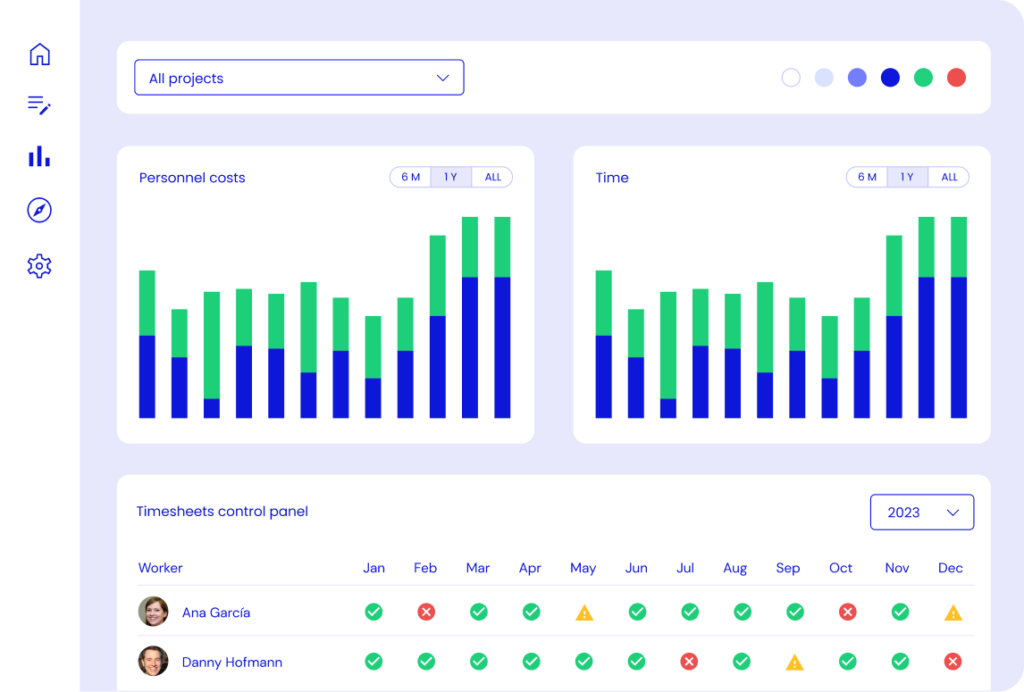In the dynamic environment of research and development (R&D), securing and managing European Union (EU) grants, especially from the Horizon Europe program, poses a significant challenge. This article addresses key strategies for effective grant management, focusing on avoiding administrative and financial errors that could lead to project expense disapproval or, in extreme cases, the repayment of subsidized funds.
Understanding Horizon Europe Guidelines:
Navigating the intricacies of Horizon Europe’s guidelines is crucial for successfully managing EU grants. This comprehensive program, designed to fuel innovation and research across Europe, comes with a set of specific criteria and eligibility requirements that applicants must thoroughly understand and adhere to.
In-depth Comprehension of Eligibility and Criteria: It’s essential to gain an in-depth understanding of what Horizon Europe funds, focusing on the specific areas of research and innovation deemed eligible. Applicants should familiarize themselves with the detailed criteria that define who can apply, what kind of projects are funded, and the extent of funding available. This knowledge is vital not just for successful application but also for the entire duration of the project.
Staying Informed about Policy Changes and Updates: Horizon Europe, like any large funding program, undergoes periodic updates and policy changes. Staying informed about these changes is imperative. Subscribers to Horizon Europe newsletters, frequent visits to the official website, and participation in related webinars and information sessions can be incredibly beneficial. Understanding these updates ensures that project managers can adapt their strategies and maintain compliance throughout their project’s lifecycle.
Leveraging Guidance and Support Services : The European Commission provides a range of guidance and support services to help applicants and grant recipients. Utilizing these resources, such as the National Contact Points (NCPs), online guidance materials, and dedicated helpdesks, can provide valuable insights into the application process and subsequent grant management. These resources are especially beneficial in clarifying complex aspects of the guidelines and offering tailored advice for specific situations or projects.
Engagement with Horizon Europe Community: Engaging with the Horizon Europe community can also provide practical insights and tips. This includes networking with past and current beneficiaries, participating in forums, and attending conferences and workshops. Such engagement offers a deeper understanding of the real-world application of the guidelines and can help in identifying common challenges and best practices in grant management.
Effective Planning and Budgeting:
- Strategies for detailed planning that aligns project activities with funding objectives.
- Methods for creating a realistic budget, including accurate estimates and provisions for contingencies.
Documentation Management and Regulatory Compliance:
- The importance of maintaining accurate and comprehensive documentation.
- Tips for ensuring regulatory compliance and avoiding deviations that could result in inadmissible expenses.
Using Tools and Software:
In today’s digital era, leveraging the right tools and software is pivotal for efficient management of EU grants like those offered by Horizon Europe. These technological solutions can significantly streamline various aspects of grant management, from application to project execution and reporting.
Selection of Specialized Software: Choosing the right software tailored for EU grant management is crucial. Features to look for include budget tracking, expenditure monitoring, document management, and compliance checks. Tools like Kronis.app are specifically designed to cater to the nuanced needs of managing EU grants, offering a centralized platform for overseeing all aspects of the grant lifecycle.
Data Security and Compliance: Given the sensitive nature of research data and financial information involved in EU grants, the chosen software must offer robust data security and compliance features. Compliance with data protection regulations like GDPR and secure data storage and backup functionalities are essential. This ensures that all project-related data is safeguarded against unauthorized access and breaches, maintaining the integrity and confidentiality of the information.
Ready to revolutionize your EU grant management process and experience the full potential of state-of-the-art software? Don’t miss out on the opportunity to see Kronis.app in action. Request a free demo today and witness firsthand how our tool can streamline your grant management, ensuring compliance, security, and unparalleled efficiency. Follow this link and request a demo of kronis.
Audits and Internal Reviews:
- The importance of regular internal audits to prevent errors and detect issues early.
- Strategies for efficient review and how to prepare for external audits.
Effective EU grant management is crucial for the success of R&D projects. By following these best practices and utilizing specialized tools like Kronis.app, organizations can mitigate the risk of administrative and financial errors, thus ensuring more efficient and successful fund management.
Additional Resources and Links:

